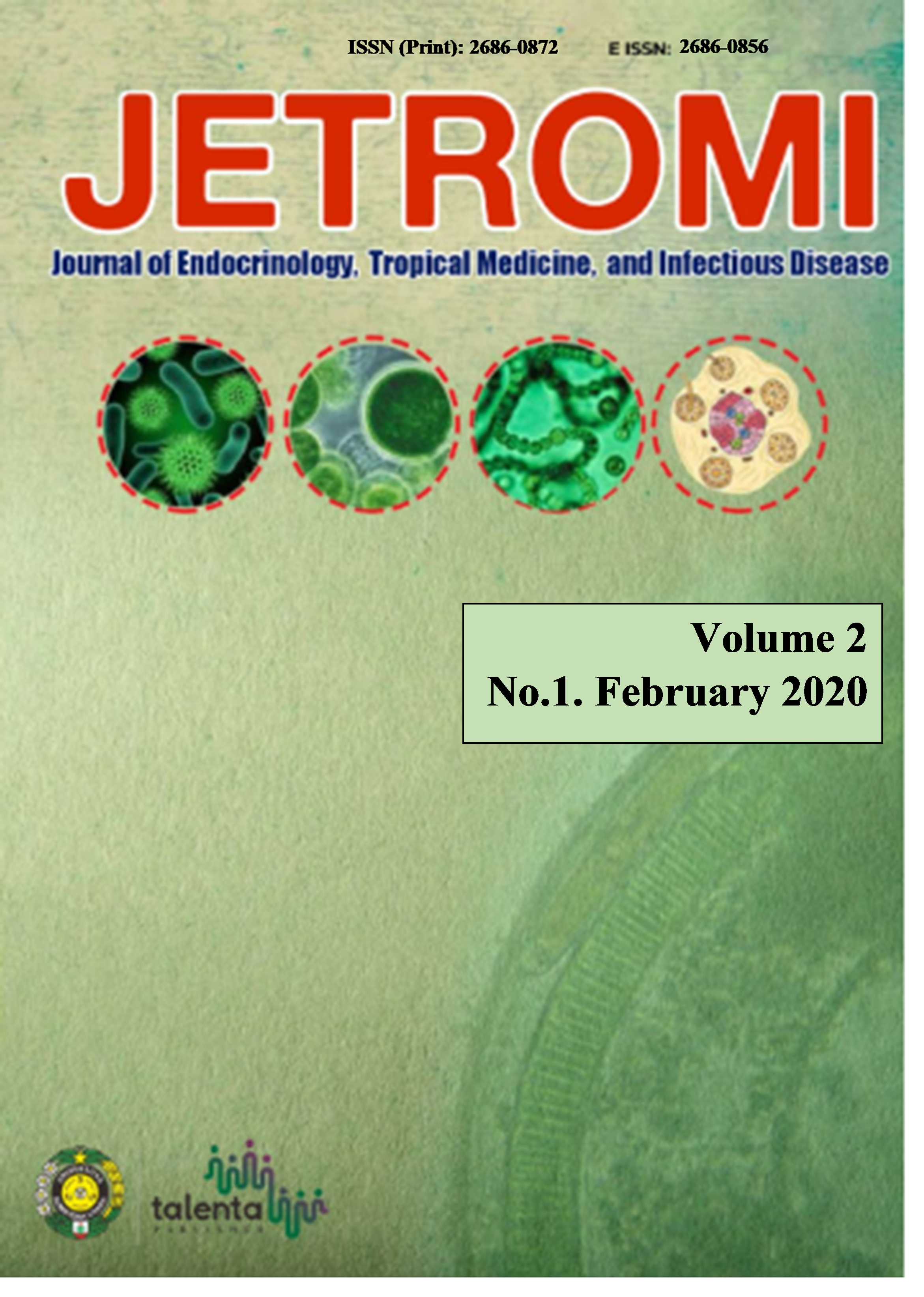The Analysis of Bacterial Colonization in NPC Patients
DOI:
https://doi.org/10.32734/jetromi.v2i1.3250Keywords:
Nasopharyngeal carcinoma (NPC), bacterial colonization, Staphylococcus aureusAbstract
Nasopharyngeal carcinoma (NPC) is carcinoma originating from epithelial cells lining the nasopharynx. This epithelial surface is the most important entry point for bacteria. Bacterial colonization of the nasopharyngeal mucosa consists of pathogenic and commensal bacteria which when the immune system declines it will cause other systemic diseases, this can trigger chronic inflammation in the upper respiratory tract. Bacterial colonization of the nasopharynx can be influenced by several factors that are interrelated to one another such as agents (microorganisms), host and the environment. The purpose of this study was to analyze the occurrence of bacterial colonization in patients with nasopharyngeal carcinoma at H. Adam Malik Hospital and University of Sumatera Utara Hospital. The study was analyzed by a cross-sectional study of 30 NPC subjects. Samples were taken by consecutive sampling from 30 NPC patients who met the inclusion and exclusion criteria. The result showed of the 30 subjects, the age group between 46 – 65 years (66.7%) with the majority being males (86.7%) and the most common histopathological type was non-keratinizing squamous cell carcinoma (76.7%). The most common bacterial colonization profile found in bacterial cultures of patients with nasopharyngeal carcinoma was Staphylococcus aureus in 12 cultures (36.36%). There was no positive correlation found for age, gender, smoking and histopathology type with bacterial colonization in patients with nasopharyngeal carcinoma.
Downloads
Downloads
Published
Issue
Section
License
The Authors submitting a manuscript do so on the understanding that if accepted for publication, copyright of the article shall be assigned to Journal of Endocrinology, Tropical Medicine and Infectious Diseases (JETROMI).
Copyright encompasses exclusive rights to reproduce and deliver the article in all form and media. The reproduction of any part of this journal, its storage in databases and its transmission by any form or media, will be allowed only with a written permission from Journal of Endocrinology, Tropical Medicine and Infectious Diseases (JETROMI).








